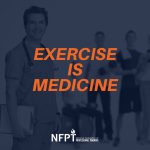
Despite the commonly held perception that personal trainers are just rep-counters or vain meatheads, being a fitness professional requires abundant knowledge, grit, dedication, and professionalism. Those considering entering this field would do well to hear what seasoned fit pros think the path to becoming a successful personal trainer looks like.
Some of the steps an aspiring fitness professional is likely to take include researching the various types of certifications available, deciding which organization to join, studying for the exam, and – lastly, sitting for the exam. Still, completing each of those steps doesn’t guarantee a fit pro will know all there is to know about their fresh career path.
Here’s what you may not have known before becoming certified as told by some of the best in the health and fitness business.
It’s a career – not a job.
Meg Root, ACE Certified Health Coach and Medical Exercise Specialist shared “I’m not sure if I thought of it as a career path versus a job and, had I known, I would have been far more strategic in my efforts, educational planning, and growth trajectory. It is all coming together for me now–especially earning my master’s degree, which has opened up more sustainable and exciting opportunities.”
Advancing in the health and fitness industry takes thoughtful planning and an eye on strategy. Viewing your presence in the industry as a career versus a temporary job or holding pattern will facilitate tremendous growth as will pursuing advanced degrees and certifications.
Behavior change is about guidance – not direction.
As personal trainers, we should be focused on facilitating meaningful behavior change, but early on in our careers, it’s easy to take a more directive approach which doesn’t ultimately result in sustainable or client-centered change. Lee Jordan, ACE Health Coach and Behavior Change Specialist, ACE-CPT, Orthopedic Exercise Specialist and Weight Management Specialist, noted his initial struggles in the industry and what he learned as a result of experience and trial and error.
“Many of my clients come to me because they are locked in a literal death spiral as their comorbidities stack up and their world shrinks due to their struggle with the disease of obesity. My heart breaks as they share their stories, diagnosis, and feelings of futility and shame.
In my earlier years as a health coach, I leaned heavily on my ‘expert’ status, knowing the way out of this deadly quagmire was providing simple direction, encouragement, accountability, and assurance that ‘I’ could lead them to safe ground. Many lives and families were transformed, and some were not. I felt the pain and struggle of each person, regardless of the eventual outcome. Being the very best and most giving health coach often means sitting in pain with your client, rather than rushing them to the door.”
What I wish I knew before becoming a personal trainer
Skillful behavior change involves guiding more than directing, dancing rather than wrestling, listening at least as much as telling (Miller & Rollnick, 2013). Meaning, while the simplest and apparently fastest path to achieving the desired healthy life my clients seek appears to be telling and directing, it’s actually not.
The “how” of sustainable change relies on a Health Coach’s ability to evoke, unlock, and unleash the unique power inside every person. Blaise Pascal said it best over three hundred years ago, “People are generally better persuaded by the reasons which they have themselves discovered than those which have come into the mind of others.”
Human health behavior is complex and not easy to change. Clients struggle to “unlearn” less healthy habits and replace them with health-supporting habits. This takes time and intention – not directive edicts from fitness professionals. Health and fitness professionals are uniquely positioned to influence and facilitate behavior change, but we must bring that to the forefront of our individual practices and businesses.
Being a 360° personal training professional
Being successful in the industry isn’t just about knowing your craft. It’s about honing and elevating your craft by investing in branding, marketing, sales, customer service, and continuing education. Coach Shay Vasudeva, NFPT-CPT, NASM-CPT-CES, and THSA-CNT, expressed “I did not know that in order to be successful in training, I not only needed to be dedicated to my craft, but also in serving my clients, and knowing the industry…business, finance, marketing, professional growth, equipment, and programming.”
We must be both a master and a student of our industry. We must continuously focus on growth (both personal and professional) and invest in all aspects of this career – from business basics to the more complex topics of functional training, fitness counseling, and workout programming.
Becoming a personal trainer takes far more than the surface knowledge required to sit for a national exam. It takes passion, intention, dedication, and a willingness to examine your own weaknesses and identify opportunities for growth. Holding a personal trainer certification alone doesn’t define industry success. Take it seriously, put in the effort, and constantly evaluate your performance and intentions to ensure a prolific career as a fitness professional.
References:
Miller, W. & Rollnick, S. (2013). Motivational Interviewing: Helping People Change(3rded.). New York: Guilford Press
Pascal, B. & Stewart, H. F. (1950). Pascal’s Pensées. New York: Pantheon.






